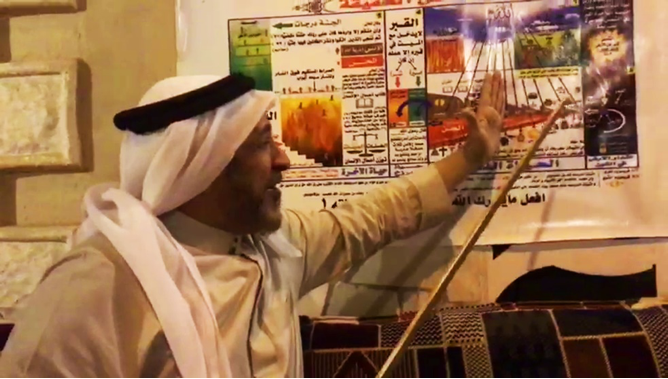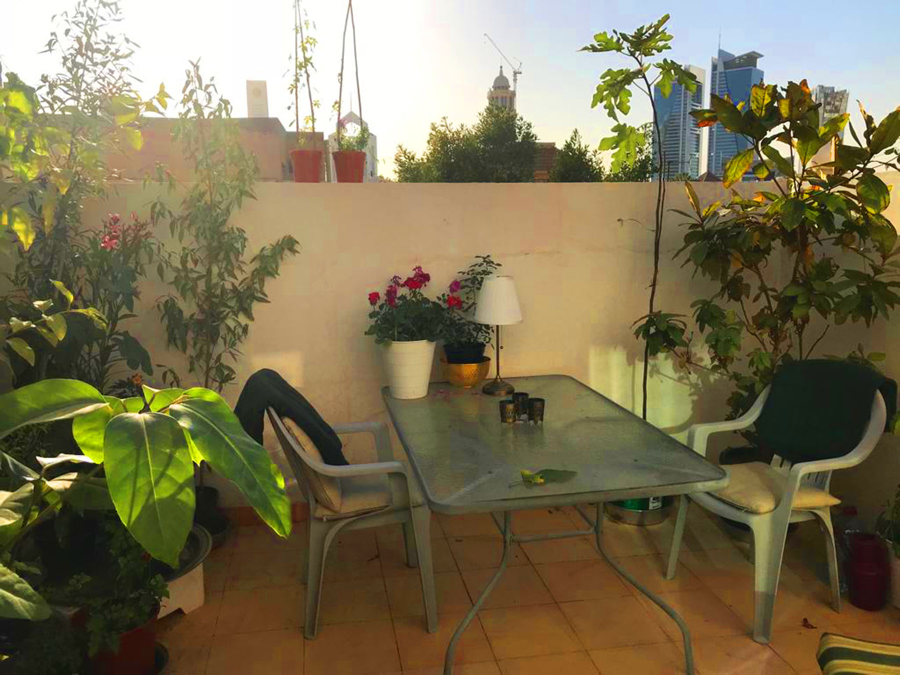How my Landlord tries to save me from Satan
Well-intentioned conservative Saudis might try to convert heterodox guests to Islam.
As a woman in Saudi Arabia, it is not as if you can’t go places. You can go wherever you like. You just never arrive anywhere.
I wander through the busy streets of Riyadh. Outside of the Bazi Baba Restaurant, known for its delicious food and fresh juices, the tables are packed with men. Women who want to eat or drink have to stand in front of a small window covered by a flap. They order and wait outside until their food is ready. Coffee shops have recently sprouted up on Tahlia Street, the capital’s most fashionable boulevard. Here, too, you will see only men. Even the fact that women can sit outside is considered progress. In the new Saudi Arabia, change is occurring every day, often at a dizzying pace. But a society that has cultivated a certain lifestyle for many decades—actually for centuries—certainly does not shed its traditions and beliefs overnight.
During my first few days in Riyadh, I stay at a hotel, a red building adorned by ornamental arches. In the lobby, guests lounge in blue velvet armchairs with brocade trim, where golden chandeliers hang from the ceiling. Upon my arrival, the receptionist proudly shows me the pool and fitness studio. I inquire about the opening hours: Sorry, for men only. Massages are also available, but again, sorry, men only.
I retire to my darkened room. Outside, it is scorching hot. I probably won’t get used to the curtains being permanently drawn so that no one can look in. I phone Mazen, a realtor I found on the internet. My mood improves considerably when he says he can find me an apartment with windows.
Is a woman even allowed to rent property in Saudi Arabia? In theory, yes. A new law has made it possible. But in practice, it’s usually still the family who decide what a woman can and cannot do. Very few families would allow a grown woman to live alone without male protection. Likewise, single men are prohibited from renting an apartment in a building with female residents. However, as a Western woman, the local customs and family rules don’t apply to me.
“Siri take me home”: The location of my apartment in Al Olaya in the heart of Riyadh.
One of the apartments Mazen offers me meets my criteria. It’s in the Olaya District and has plenty of light and a balcony with a view of the Al Faisaliyah Center, the second-tallest building in the city, as well as the highest, the thousand-foot Kingdom Center. It’s like having a view of the Statue of Liberty and the Empire State Building at the same time.
My landlord, Colonel Hasan, is a former Air Force pilot. He lives with his wives and a lot of children on a large property at the end of the street. Colonel Hasan is without a doubt a shrewd businessman, a man of the world, and deeply religious.
One evening, I join him on his terrace just behind the entrance gate, where he receives his guests. A cook brings soup, lamb with rice, spinach, and coffee. Colonel Hasan recounts his training to become a fighter pilot in the United States. He shows me around the house and introduces me to one of his daughters, a nineteen-year-old studying at university to be a French and English translator.
JESUS WAS A GOOD PROPHET, SAYS MR. HASAN, BUT MOHAMMED IS IN STEP WITH THE TIMES
This family man calls women the “diamonds” of the human race who must be protected from covetous eyes. They are kept safest by remaining at home.
We discuss whether it is important that women should be allowed to drive. “Why should women drive, Susanne? Is this really necessary?” Colonel Hasan asks. “If women leave the house, society falls to pieces.”

With sketched drawings Colonel Hasan explains to me how the world came into existence and how God first created Adam and then made Eve from one of his ribs. The world is now barreling toward its end, he says. When houses grow to the sky, when metal can speak, and when weeks become days and days become hours, then the time has come. These prophecies from Islamic scripture have already come true, says Mr. Hasan; I could see the skyscrapers from my balcony. The metal that talks refers to mobile phones. He points to our iPhones on the table and then at his sketch, which shows people roasting in a hellfire that is glowing in sinister yellow and red. People who have strayed from the path of faith.
“Think about it, Susanne! It’s only logical,” says Mr. Hasan, with urgency in his voice. He would love me to convert to Islam, for my own protection. Of course, Jesus was a good prophet, he says. Mohammed is simply more relevant today. It’s like with the former German chancellor, Gerhard Schröder. He was talented, but now it’s Angela Merkel who has the power and can wield it. Colonel Hasan seems to think that a decision to convert requires time. He’s stubborn, but also patient. He pours me more coffee, offers me more food. Months after I left the kingdom, he still sends me videos on WhatsApp encouraging me to save my soul from Satan.
I’ve hit the jackpot with my new home on Ibn Ammar Street. It has two big corner windows that open up onto a small terrace, an American-style kitchenette, and a bedroom. It looks out across an expanse of palms to the glittering skyline of skyscrapers and palaces, the sprawling residential neighborhoods behind them, and the eight-lane freeways that cut through the desert at a ninety-degree angle. A mere one hundred years ago, this land was home to a few shepherds living alongside the Bedouins. Today, the heart of the kingdom has swollen into a pulsating metropolis of over seven million people. For the next three months, this third-floor apartment will be my retreat.

